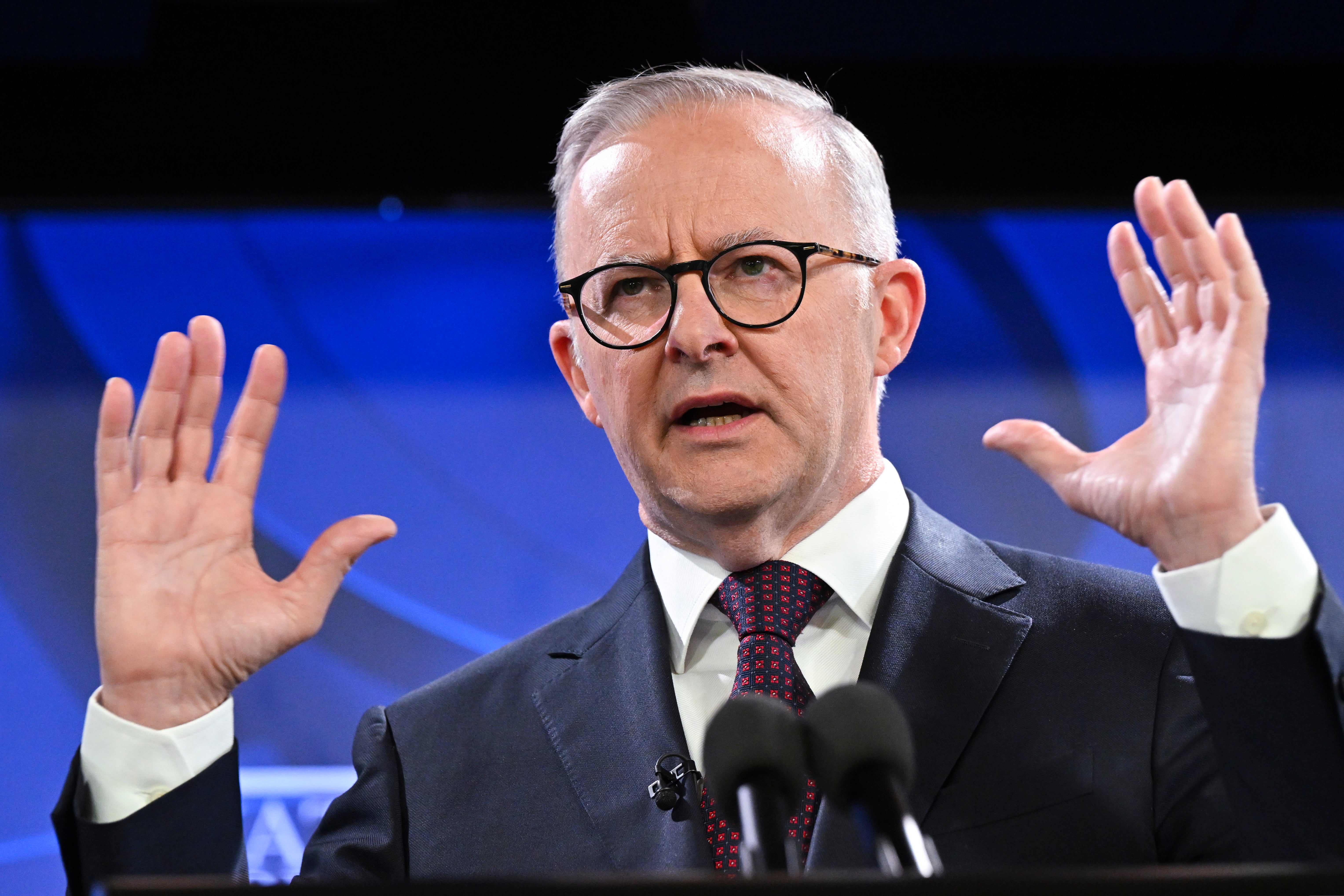Albanese says Australian nuclear subs benefit US, UK
Australian Prime Minister Anthony Albanese says a deal to provide Australia with nuclear-powered submarines will be the nation’s biggest leap in defense capability in its history

Your support helps us to tell the story
From reproductive rights to climate change to Big Tech, The Independent is on the ground when the story is developing. Whether it's investigating the financials of Elon Musk's pro-Trump PAC or producing our latest documentary, 'The A Word', which shines a light on the American women fighting for reproductive rights, we know how important it is to parse out the facts from the messaging.
At such a critical moment in US history, we need reporters on the ground. Your donation allows us to keep sending journalists to speak to both sides of the story.
The Independent is trusted by Americans across the entire political spectrum. And unlike many other quality news outlets, we choose not to lock Americans out of our reporting and analysis with paywalls. We believe quality journalism should be available to everyone, paid for by those who can afford it.
Your support makes all the difference.Australian Prime Minister Anthony Albanese says a deal to provide Australia with nuclear-powered submarines will be the nation’s biggest leap in defense capability in its history, adding the United States and Britain also plan to benefit from the partnership.
A decision will be announced in March on how a fleet of Australian submarines powered with U.S. nuclear technology will be delivered under the AUKUS tripartite pact.
Options include a next-generation U.S. Virginia-class sub, a British Astute-class or a new hybrid design.
Critics argue that neither the United States nor Britain has the capacity to start delivering the subs by 2040, while Australia lacks the shipbuilding capability to take a lead role.
Albanese said Tuesday the technology sharing among the AUKUS partners would bring benefits beyond submarines.
“Now, this will be the single biggest leap in our defense capability in our history,” Albanese told the National Press Club, referring to Australia’s advance from Australian-built Collins-class diesel-electric submarines that went into service more than 20 years ago.
“AUKUS is about much more than nuclear submarines or even technological interoperability. AUKUS is about the future. It further formalizes the common values and the shared interests that our three nations have,” Albanese added.
Albanese said the three governments were focused on how their countries would benefit from spinoffs from the submarine-building cooperation.
“It’s a focus that recognizes that it’s not a zero-sum game. This is one of those times when one plus one plus one equals more than three because there’s a multiplier effect and a benefit from sharing some of the science and innovation,” Albanese said.
“All three countries want the sum to be a benefit for all of the three nations,” he added.
Critics argue Australia’s lack of nuclear expertise will leave it heavily reliant on its nuclear-armed partners. Australia’s only atomic reactor is in the Sydney suburb of Lucas Heights where it produces nuclear isotopes for medical use.
Unlike Australia’s current homemade fleet, critics argue that Australia might not be able to use its nuclear submarines in circumstances that the United States or Britain disagree with.
But Albanese said Australia would maintain authority, or sovereignty, to decide how the subs are deployed.
“Australia will maintain our sovereignty. That’s a decision for Australia as a sovereign nation, just as the United States will maintain its sovereignty and the United Kingdom will maintain its” sovereignty, Albanese said.
Australia has reassured regional neighbors who fear an arms race that while the Australian subs will be nuclear powered, they will never be nuclear armed.
Australia currently spends 2.1% of its GDP on defense, above the 2% minimum that former President Donald Trump demanded of U.S. allies.
Albanese said defense spending would increase in the years ahead.